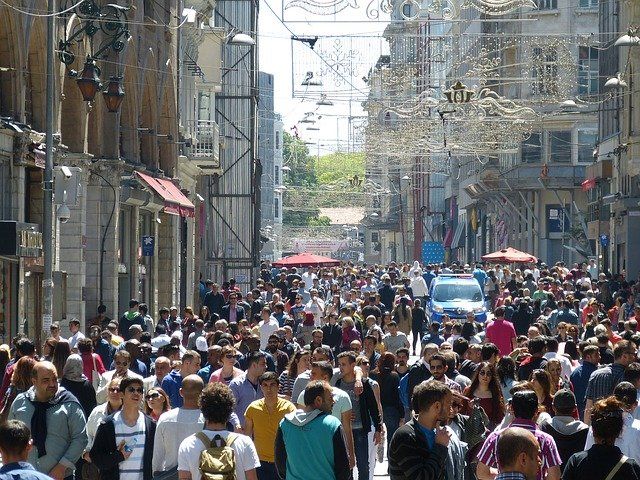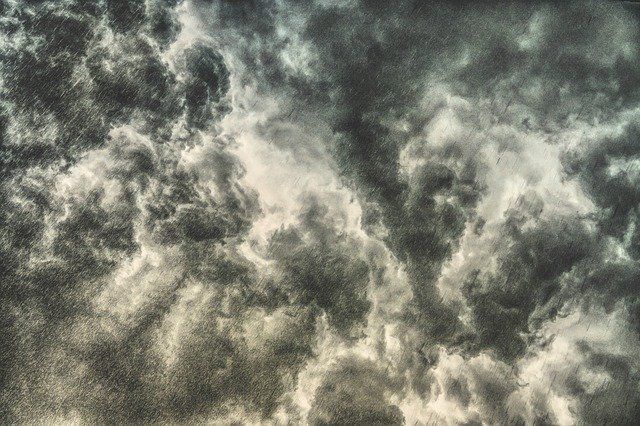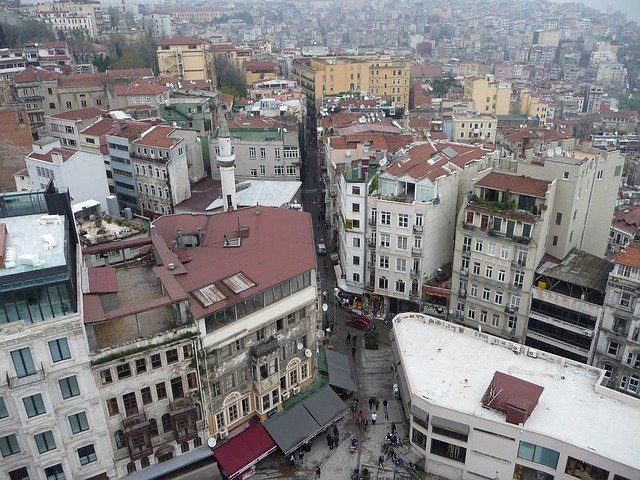
The ancient capital of the eastern Roman Empire, Constantinople, occupied a comparatively small area of land, protected on three sides by water. In this area, on the European side of the Bosphorus, are Istanbul’s covered market and university. In 1966, when we first lived in Istanbul (no longer a capital city), the population was three million. Today it has reached seventeen million, with many migrants from the east of Turkey, and now the city covers a large area. High-rise flats and minarets dominate the landscape. The air pollution has to be seen to be believed.
Overwhelming suffering
It is impossible to be indifferent to suffering, but suffering on a vast scale is overwhelming. Poor health service, extremely high unemployment, no income support, homelessness, street children, beggars, young married couples obliged to live with parents. Where could one begin to witness for Christ? How very relevant is the parable of the Good Samaritan, with its doctrine of providence, in such a situation. In his providence, God brought across our path each day people who were in desperate need. When we were not looking for them, God guided them to us. In an essentially Islamic society, it is in this way that many opportunities to speak of Christ are given. Here are just a few ‘neighbours’ we were privileged to meet in Istanbul over the years.

Drowning
Newly convalescent from hepatitis, I had been confined to the flat for many weeks. ‘Father,’ I prayed, ‘why have you taken me from my own family and country and allowed me to suffer such loneliness? If I am to be here, please let me be useful’. Half an hour later, I joined my husband and three children outside. To my amazement a huge crowd had gathered close to a building site. I rushed up to find a boy of about nine years who had been pulled out of a tank of water. He was not breathing but, instead of attempting first aid, those in the crowd were arguing very heatedly.
Pushing into the circle I moved the position of the lad, who then vomited and began to breathe. I carried him to his flat, the whole crowd following. When he returned from the hospital the crowd was still there, seated around and continuing in their quarrel as to whose fault it was. The mother allowed me to help her wash him and feed him, and then opportunity came to testify to about thirty people that since God had spared the child’s life, it would be better to pray to him and thank him. This we did, and later several accepted New Testaments. We discovered the community were immigrant Muslims from Albania.

Storm
For about eight months we had been reading Pilgrim’s Progress, by the light of an oil lamp, to a poor village family living in a shack. We were accepted well until we told them about Jesus, the Saviour from sin. ‘Stop talking about Jesus!’ we were censured. David and I prayed earnestly that God would break through this spiritual darkness. One evening, soon after, there was a freak storm. Hailstones fell, large enough to smash the windows of most flats in the area. Large trees were felled.
When the rain ceased we rushed to this family and found a massive plane tree had fallen, just missing their shack. We hugged them as they wept, telling them, ‘Do you know that we have been praying for your safety in the name of Jesus, as he told us to pray? Do you believe he heard our prayers?’ ‘We do,’ they joyfully admitted. A dear brother from Hemel, now in glory, sent a gift to help this family build a tiny house.

Shoes
One winter’s afternoon, as we passed a woman selling melons, she stepped forward. ‘Your feet are my size! Please forgive me. If you have another pair of strong shoes like those, could you let me have them, because these plastic ones give no protection from the snow. You can get my address from the Muhtar [village leader].’ Finding I had one more pair at home, I took them to her. I was shocked to see her living in a whitewashed, one-roomed, cement house, dripping with condensation and with no heating at all. A nineteen-year-old son lay very ill in bed. She was a widow.
She hugged and thanked me for the shoes, asking for nothing more. What a joy it was to go with our three young children to buy heating fuel, load it into the car and take it to her. We had all been complaining about our lot, but we realised how rich we were in comparison with her. Not only did she suffer physically, but had no knowledge of the gospel. We were debtors to tell her later about God’s greatest gift.

Life
‘I’m exhausted,’ the taxi driver complained. His terrible driving reflected this. ‘I work seven days a week, fourteen hours a day, to give my family a reasonable standard of living, such as we see on TV that you have in the West’. Opportunity came for us to say that people in the West had not found happiness in material possessions, and that many would envy him his lovely family. Jesus said, ‘A man’s life consists not in the abundance of things which he possesses’. ‘Yes,’ he acknowledged, ‘my children tell me they wish they saw more of me’. He accepted a New Testament and an invitation to meet the lovely believers at the church in Moda. He began to see that he was more blessed than he had realised.
Our doorkeeper’s illiterate wife came to kiss me goodbye before I returned to England last Spring. She said, ‘Why do you never ask me to go shopping for you? Why are you going? You never trouble us. Couldn’t you stay?’ I answered, ‘I miss my family and I have not been well, but we’re only as we are because we love God and we believe in Jesus. HE loves more than any, and you and I are sisters through Adam and Eve’. I did not make time to talk more with her, because I was so busy. Recently we received a letter telling us she had fallen to her death from the fourth floor, after being asked by our landlady upstairs to clean the outside of her windows. She was forty years old. If only I had said more!







